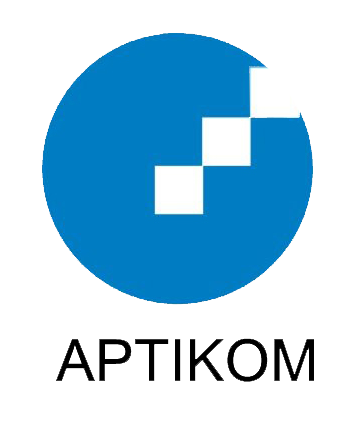Data Quality Management in Educational Data
A Case Study of Statistics Polytechnic
Abstract
Every varsity in Indonesia is responsible for ensuring the completeness, the validity, the accuracy, and the currency of its educational data. The educational data is used for implementing higher-education quality assurance system and formulating policies related to universities and majors in Indonesia. Data quality assessment result indicates that educational data in Statistics Polytechnic did not meet completeness, validity, accuracy, and currency criteria. Data quality management maturity has been measured using Loshin’s Data Quality Maturity Model which result is in level 1 to level 2 of maturity. Only the data quality dimensions component has achieved the expected target. Thus, recommendations have been proposed based on the DAMA-DMBOK framework. The activities needed to be carried out are developing and promoting awareness of data quality; defining data quality requirements; profiling, analyzing, and evaluating data quality; define business rules for data quality, establish, and evaluate the data quality services levels, manage problems related to data quality, design and implement operational procedures for data quality management, and monitor operations and performance of data quality management procedures.
Downloads
References
Badan Pusat Statistik. 2018. Peraturan Badan Pusat Statistik Nomor 87 Tahun 2018 Tentang Statuta Politeknik Statistika STIS, p. 1.
Van Den Berghe, S., and Van Gaeveren, K. 2017. “Data Quality Assessment and Improvement: A Vrije Universiteit Brussel Case Study,” Procedia Computer Science (106:June 2016), The Author(s), pp. 32–38. (https://doi.org/10.1016/j.procs.2017.03.006).
Carratero, A. G., Freitas, A., Cruz-Correia, R. J., and Piattini, M. 2016. A Case Study on Assessing the Organizational Maturity of Data Management , Data Quality Management, and Data Governance by Means of MAMD, (October).
DeLone, W. H., and McLean, E. R. 1992. “Information Systems Success: The Quest for the Dependent Variable,” Information Systems Research (3:1), pp. 60–95. (https://doi.org/10.1287/isre.3.1.60).
Effendi, D. 2012. “Pengukuran Dan Perbaikan Kualitas Data Dan Informasi Di Perguruan Tinggi Menggunakan CALDEA Dan EVAMECAL,” Seminar Nasional ReSaTek II-2012 (November 2012), TI-G.1-TI-G.11.
Even, A., and Shankaranaryanan, G. 2009. “Dual Assessment of Data Quality in Customer Databases,” ACM Journal of Data and Information Quality (1:3), 15:1-15:29. (https://doi.org/10.1145/1659225.1659228.http).
Gagliardi, D. 2015. “Material Data Matter — Standard Data Format for Engineering Materials,” Technological Forecasting and Social Change (101), Elsevier Inc., pp. 357–365. (https://doi.org/10.1016/j.techfore.2015.09.015).
Hazen, B. T., Weigel, F. K., Ezell, J. D., Boehmke, B. C., and Bradley, R. V. 2017. “Toward Understanding Outcomes Associated with Data Quality Improvement,” International Journal of Production Economics (193:August), Elsevier Ltd, pp. 737–747. (https://doi.org/10.1016/j.ijpe.2017.08.027).
Kementerian Pendidikan Nasional Direktorat Jenderal Pendidikan Tinggi. 2010. Pedoman Sistem Penjaminan Mutu Pendidikan Tinggi (SPM-PT), Jakarta: Penulis.
Kementerian Ristekdikti. 2016a. Peraturan Menteri Ristekdikti Nomor 61 Tahun 2016 Tentang Pangkalan Data Pendidikan Tinggi, pp. 1–11.
Kementerian Ristekdikti. 2016b. Peraturan Menteri Ristekdikti Nomor 62 Tahun 2016 Tentang Sistem Penjaminan Mutu Pendidikan Tinggi, p. 8.
Kementerian Ristekdikti Republik Indonesia. 2015. Peraturan Menteri Riset, Teknologi Dan Pendidikan Tinggi Republik Indonesia Nomor 44 Tahun 2015 Tentang Standar Nasional Pendidikan Tinggi, pp. 1–8.
Kneuper, R. 2009. CMMI. Improving Software and Systems Development Processes Using Capability Maturity Model Integration (CMMI-DEV).
Lee, Y. W., Pipino, L. L., Funk, J. D., and Wang, R. Y. 2006. Journey to Data Quality, Cambridge: The MIT Press.
Loshin, D. 2011. “The Practitioner’s Guide to Data Quality Improvement,” MK Series on Business Intelligence. (https://doi.org/http://dx.doi.org/10.1016/B978-0-12-373717-5.00019-1).
Lucas, A. 2010. “Corporate Data Quality Management: From Theory to Practice,” in 5th Iberian Conference Information Systems and Technologies (CISTI), Santiago de Compostela, Spain, pp. 1–7. (https://doi.org/10.1007/s00038-011-0292-2).
Malange, S. N., Ngassam, E. K., Ojo, S. O., and Osunmakinde, I. O. 2015. “Methodology for Improving Data Quality Management in South African Government Departments,” in IST-Africa, pp. 2–9.
Mosley, M., Brackett, M., Earley, S., and Henderson, D. 2009. “The DAMA Guide to The Data Management Body of Knowledge,” Technics Publications, LLC Post.
Nascimento, D. C., Pires, C. E., and Mestre, D. G. 2015. “A Data Quality-Aware Cloud Service Based on Metaheuristic and Machine Learning Provisioning Algorithms,” Proceedings of the 30th Annual ACM Symposium on Applied Computing - SAC ’15, pp. 1696–1703. (https://doi.org/10.1145/2695664.2695753).
Penning, M., and Talburt, J. R. 2012. Information Quality Assessment and Improvement of Student Information in the University Environment, p. 4.
Presiden Republik Indonesia. 2012. Undang-Undang Republik Indonesia Nomor 12 Tahun 2012 Tentang Pendidikan Tinggi, pp. 1–97. (https://doi.org/10.1073/pnas.0703993104).
Sekolah Tinggi Ilmu Statistik. 2014. Rencana Strategis Sekolah Tinggi Ilmu Statistik Tahun 2015-2019.
Tahvildarzadeh, M., Moghaddasi, H., and Hosseini, M. 2017. “A Framework for Quality Management of University Educational Information: A Review Study,” Research and Development in Medical Education (6:1), pp. 3–11. (https://doi.org/10.15171/rdme.2017.002).
Wibisono, S. B., Hidayanto, A. N., and Nugroho, W. S. 2018. “Data Quality Management Maturity Measurement of Government-Owned Property Transaction in BMKG,” CommIT (Communication & Information Technology) (12:2), pp. 59–72. (https://doi.org/https://dx.doi.org/10.1002/ccd.24308).
Wijayanti, W., Hidayanto, A. N., Wilantika, N., Adawati, I. R., and Yudhoatmojo, S. B. 2018. “Data Quality Assessment on Higher Education: A Case Study of Institute of Statistics,” in International Seminar on Research of Information Technology and Intelligent Systems (ISRITI), Yogyakarta.
Zubrow, D., Hayes, W., Siegel, J., and Goldenson, D. 1994. Software Process Maturity Questionnaire, (June).
Copyright (c) 2019 Jurnal Sistem Informasi

This work is licensed under a Creative Commons Attribution-ShareAlike 4.0 International License.
Authors who publish with this journal agree to the following terms:
- Authors retain copyright and grant the journal right of first publication with the work simultaneously licensed under a Creative Commons Attribution License that allows others to share the work with an acknowledgement of the work's authorship and initial publication in this journal.
- Authors are able to enter into separate, additional contractual arrangements for the non-exclusive distribution of the journal's published version of the work (e.g., post it to an institutional repository or publish it in a book), with an acknowledgement of its initial publication in this journal.
- Authors are permitted and encouraged to post their work online (e.g., in institutional repositories or on their website) prior to and during the submission process, as it can lead to productive exchanges, as well as earlier and greater citation of published work (See The Effect of Open Access).








